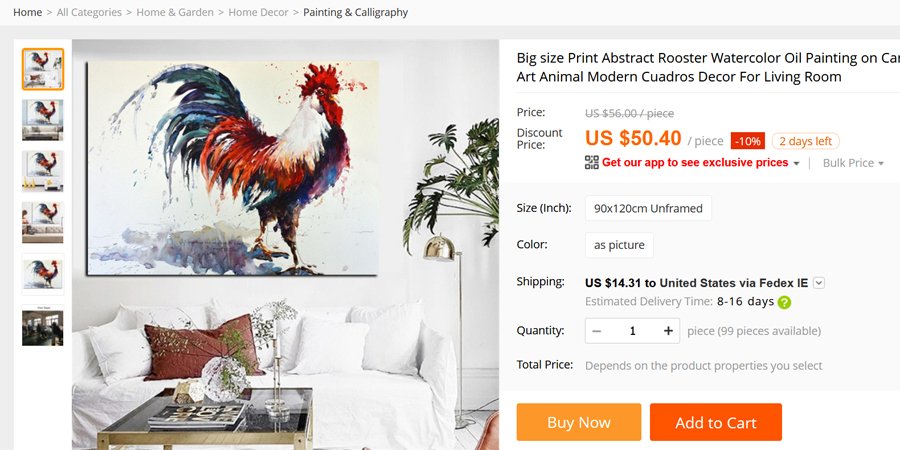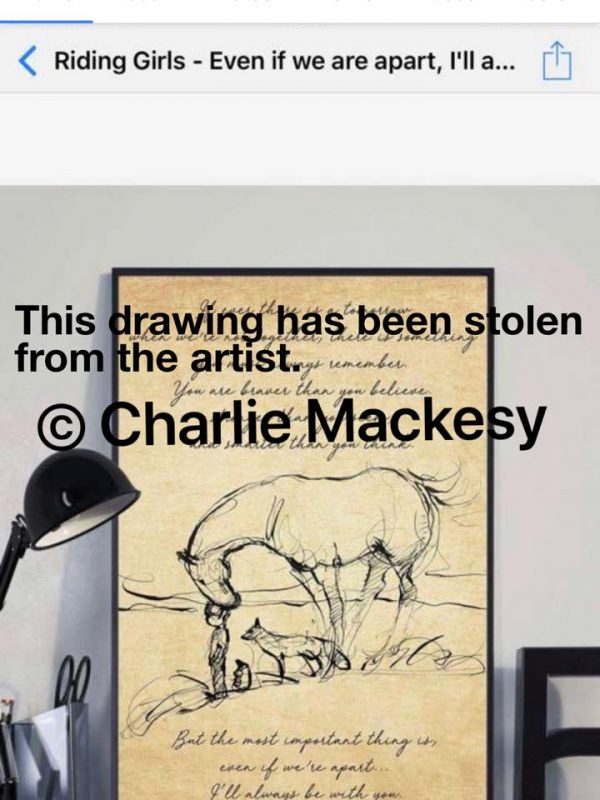A couple of week ago two stories hit my inbox nearly simultaneously. They made me mad. And I decided to share my anger to (hopefully) educate my non-artist friends. So, yes, this is me on a soapbox. It’s a sermon.
And I’m not sorry.
Ripping Off Bev Jozwiak
The first incident was a Facebook posting by Bev Jozwiak, and inspired local painter from whom I have taken workshops.
This is my painting selling on ***.com without my permission. Get so sick of the rip offs. ~ Bev Jozwiak

For my non-artist friends, what Bev is saying is that someone took a picture of her work and/or stole an image from the internet, cleaned it up, and is now selling it for cheap at one of the big online print companies.
I’ve heard stories about this over the years. Placing a copyright on the image does no good because there is software that can take it off in less time than it took to put it on.
Some artists swear by only putting up low resolution images. Again, this can work, but software is so good that it can compensate for that. Additionally, some work (like Bev’s) is “impressionistic” so a little fuzziness just adds to the effect.
Further complicating the issue, not all countries have the same copyright laws as the United States.

The best the artist can do is to contact the “store” and complain. Most times, they will take down the image or at least move it to a place on their site where it will attract less attention for a while.
But the moral of the story is the artist is out of pocket. Not only for the image that was stolen, but for the potential art space. The buyer of the image clearly wanted something for that space and now it will not be an original.
The disputes of Charlie Mackesy
A few weeks ago I “liked” a new artist, Charlie Mackesy. I was drawn to his “Boy and Horse” series, a series which is brilliant in its simplicity.
A few days after Bev Jozwiak posted, a series of posts on Charlie Mackesy’s page indicated he was having a dispute with a company that he felt was ripping off his work.

While Mr. Mackesy has not been overly forthcoming about the details of the dispute, as I understand it, the company took his images and either used Photoshop to change them slightly or hired an artist to redraw them. Then they added words and printed the result on T-shirts and other merchandise.
And all Mr. Mackesy can do is sue. He probably won’t win. A simple line drawing is not hard to copy and the copyright laws indicate that if an image is changed a mere 10%, it is not copying.
So what should you do?
As Americans, all of us are familiar with the idea of using our buying power to effect change. It’s about the most American system we have.
As art consumers, I would like to implore you to start looking at what you are buying and insisting on using those dollars to move our system to support artists.
Don’t trust those websites! Only purchase directly from artists. Don’t know an artist… I can help you out! Or use Google to find a local art group. If a gallery seems too scary, consider an open studio sale or co-op gallery. A sidewalk artist. A plein air competition. I guarantee that any of these places are someplace you can find an artist who would be THRILLED to sell a painting.
Don’t have the budget for “art”! You’d be surprised. Many artists have older pieces that they might sell at a discount or “bin” work that has a “flaw” (you’ll never see it) that prevented them from framing it up for a show or gallery. These pieces are a WONDERFUL addition to a space. And don’t discount some of the HGTV options such as framing up family photos or your child’s artwork. These options are MUCH better than ripping off an artist.
Finally, reconsider purchasing “prints” in all their forms. T-shirts. Plaques, Posters. All of these are easy ways that an artist can have an image taken from them. If you want to purchase a print, get it directly from the artist.
No one knows better than an artist there is no free lunch. But consider your part in the cycle before you grab that candy bar!

Great blog post, Tara! You hit all the points!